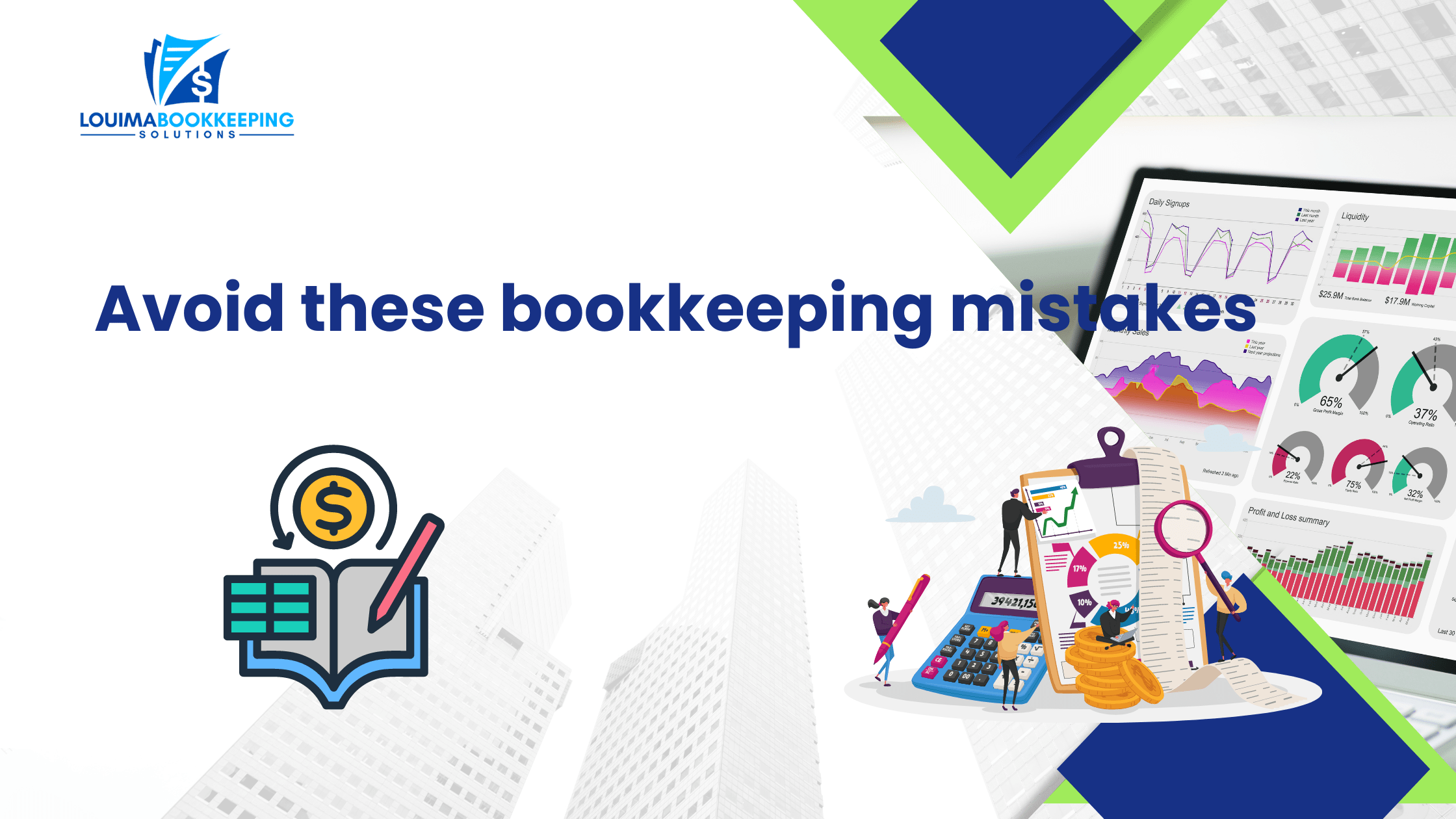What are the most asked bookkeeping questions? Effective bookkeeping processes are essential for businesses of all sizes, from small startups to large corporations, and require a strong understanding of accounting principles, financial statements, and regulatory requirements. Bookkeeping is the foundation of business financial management, systematically recording and tracking financial transactions. In this guide, we’ll explore the ten most frequently asked questions about bookkeeping.
From defining bookkeeping principles to navigating the complexities of choosing the right software, these questions cover key aspects that individuals and businesses encounter on their bookkeeping journey. By mastering the fundamentals of bookkeeping, businesses can optimize their financial performance, minimize errors and fraud, and confidently achieve their goals. We aim to provide clarity and guidance to help you navigate the world of bookkeeping with confidence and efficiency.
1- What is the difference between cash-basis and accrual-basis accounting?
To understand cash-basis vs. accrual-basis, you must pay close attention to when the cash is exchanged hands and when the cash is received or left. Cash-basis accounting records transactions only when cash is received or paid out. Revenue is recognized when cash is received from the customers, and expenses are recorded when cash is paid to suppliers or other parties.
On the other hand in accrual-basis accounting, transactions are recorded when they occur, regardless of when cash exchange hands. Revenue is recognized when earned, typically when goods are delivered, or services are rendered, even if payment has not been received yet. Expenses are recognized when they are incurred, meaning when goods or services are received, even if payment has not been received yet. Here is a simple analogy.
Cash Basis: Think of a cash-basis accounting as a postal worker who only delivers mail when is received. They don’t worry about the letters being written, stamped, or sent – only when they arrive at the post office.
Accrual Basis: is like a postal worker who tracks the entire process. They count the letters as soon as they’re written, account for the stamps and postage, and track the delivery process even if the mail hasn’t arrived yet.
2 – How do I calculate and record depreciation in my bookkeeping?
Generally speaking, bookkeepers do not directly calculate depreciation. The tax preparer does it during tax filing season, and these numbers are passed on to the bookkeeper to make the journal entries. Here is the most common workflow to calculate depreciation:
- Determine the cost basis: Identify the original cost of the asset, including any additional costs such as shipping, installation, or setup fees.
- Determine the useful life: Estimate how many of years the asset will be in use. This can be based on the asset’s expected lifespan, industry standards, or the company’s experience.
- Determine the residual value: Estimate the asset’s value at the end of its useful life. This is also known as the salvage value.
- Calculate the depreciation rate: There are several methods for calculating the depreciation rate for example, the straight-line method or the declining balance method
- Straight-Line Method: Depreciation Rate = (Cost Basis — Residual Value) / Useful Life
- Record the depreciation expense: Debit the Depreciation Expense account and credit the Accumulated Depreciation account.

3 – How often should I reconcile my bank accounts with my bookkeeping records?
Generally, it is recommended to reconcile your bank accounts with your bookkeeping records every month. Reconciliation ensures that the transactions recorded in your books match the transactions reported by your bank, helping to identify any discrepancies or errors. However, the frequency of reconciliation depends on the volume of transactions and the company’s financial activity. Here are some guidelines:
- Daily: For high-volume transactions, such as retail businesses or e-commerce companies, consider reconciling daily to ensure accurate cash management.
- Weekly: For moderate transaction volumes, reconcile weekly to stay on top of cash flow and detect any errors or fraud.
- Monthly: For most businesses, reconciling monthly is a good starting point. This ensures timely detection of errors and allows for prompt investigation and correction.
- Quarterly: If you have a low volume of transactions, reconciling quarterly might be sufficient.
Regular reconciliation helps maintain accurate financial records, prevents errors, and detects potential fraud. Adjust the frequency based on your business needs and transaction volume.
4 – What is a journal entry, and how do I use it?
A journal entry is a method used in accounting to record chronologically all financial transactions in a business’s accounting system. It’s the first step in the accounting process, where transactions are initially recorded before being transferred to the general ledger. Usually, a journal entry has a date, a debit account, a credit account, and a description. If you want to learn more about the double-entry system.
You need to follow a set of steps to use a journal entry.
- Identify which transaction needs to be made
- Determine the affected accounts (at least 2 accounts)
- Follow the Double-Entry Principle:
- Record the journal entry (record debit and credit)
- Post to the General Ledger
- Prepare Financial Statements:
5-How do I record sales of inventory?
This is another common bookkeeping question. Recording sales of inventory involves 2 journal entries that affect at least 4 different accounts.
Journal entry 1
- Debit: Cost of Goods Sold (COGS) account
- Credit: Inventory account
Journal entry 2
- Debit the Accounts Receivable (or Cash)
- credit the Sales Revenue account
Finally, the last step is to update the inventory account to reduce the quantity and value of the sold inventory but most systems will do that automatically.
6 – What are the essential financial reports do I need to run my business?
Several reports could be generated to provide insight into the business’s financial performance and position. Each report serves to communicate different financial information. Here are the most common financial reports produced by bookkeepers.
- Income Statement (Profit and Loss Statement): A summary of revenues, expenses, and net income over a specific period
- Balance Sheet: A snapshot of your company’s financial position at a specific date, including assets, liabilities, and equity
- Cash Flow Statement: A report on the inflows and outflows of cash and cash equivalents, including operating, investing, and financing activities
- Accounts Receivable Aging Report: It helps monitor the collection of receivables and identifies overdue accounts that may require follow-up
- Accounts Payable Aging Report: It helps manage vendor payments and identifies overdue payables.
- Inventory Valuation Report: This helps monitor inventory levels, track the cost of goods sold, and assess inventory turnover.
- Budget vs. Actual Reports: Comparisons of planned versus actual financial performance, helping you identify variances and make adjustments.
7— Another bookkeeping question people are asking is the difference between a trial balance and a balance sheet.
Trial balance: is the list of all general ledger accounts and their corresponding debit or credit balances. The trial balance is not a financial statement itself but rather a tool to help prepare financial statements and ensure the accounting records’ arithmetic accuracy.
On the other hand, the balance sheet is a financial statement that presents a snapshot of a company’s financial position at a specific time. It reports the company’s assets, liabilities, and equity and provides a picture of its financial health and solvency.
8—What are the tax implications of my bookkeeping decisions?
Your bookkeeping decisions can have significant tax implications on your business in many ways. That is why it is always recommended to get a qualified bookkeeper to handle your book or consult with a tax professional or accountant to ensure your bookkeeping decisions align with tax laws and regulations and to maximize tax efficiency. Here are some implications of your bookkeeping activities:
Accurate income reporting: Proper bookkeeping ensures accurate business income reporting, and it affects tax liability.
- Expense deductions: Correctly categorizing and recording expenses can impact the amount available deductions, reducing taxable income.
- Asset depreciation: Accurate asset tracking and depreciation calculations impact taxable income and potential tax credits.
- Tax credits and incentives: Proper bookkeeping helps identify eligible credits and incentives, such as research and development credits.
- Audit risk: Inaccurate or incomplete bookkeeping can increase the risk of an audit, potentially leading to additional tax liabilities and penalties.
- Tax basis and capital gains: Accurate tracking of asset purchases, sales, and depreciation impacts tax basis and capital gains tax liabilities.
- Entity structure and tax status: Bookkeeping decisions can impact the tax status of your business (e.g., sole proprietorship, partnership, corporation).
- Sales tax and VAT compliance: Accurate bookkeeping ensures proper sales tax and VAT calculations and remittance.
- Employment tax compliance: Proper bookkeeping helps ensure accurate payroll tax calculations and remittances.
- Tax planning and strategy: Good bookkeeping provides a solid foundation for tax planning and strategy, enabling informed decisions to minimize tax liability.
9—Do you need an accountant or a bookkeeper for a small business? What’s the difference between an accountant and a bookkeeper?
The right answer is it depends. Really the choice between an accountant and a bookkeeper depends on your business’s unique needs and financial situation. It depends on the size, complexity, and needs of your business. For example, if you need to categorize and record financial transactions, simple financial reports, limited financial planning, and a few employees. A bookkeeper would be enough. But if you require complex financial planning for multiple employees and locations, requires tax planning, budgeting, and forecasting. You might need both (bookkeeper and accountant)
10—How can I streamline my bookkeeping processes to save time and reduce errors?
If you do not have an in-house bookkeeper, the best way to streamline your bookkeeping processes is to outsource the task to a qualified bookkeeper. By doing this it will help you save time, reduce errors, and improve financial management. Here are a few things you can do to help you streamline your bookkeeping process.
- Automate tasks: Leverage accounting software like QuickBooks, Xero, or Wave to automate tasks such as data entry, invoicing, and reconciliations.
- Set up a consistent chart of accounts: Organize your accounts logically and consistently to simplify tracking and reporting.
- Use templates: Create templates for frequently used documents like invoices, receipts, and expense reports.
- Implement a document management system: Digitize and store financial documents in a centralized location, like Dropbox or Google Drive.
- Schedule regular reconciliations: Reconcile bank statements, credit cards, and loans regularly to help catch errors and discrepancies.
- Use bank feeds and imports: Connect your bank accounts to your accounting software to automatically import transactions.
- Establish a clear accounts payable and receivable process: Set up a system for tracking and paying bills, and for sending and tracking invoices.
- Use accounting integrations: Connect your accounting software with other tools like payment gateways, e-commerce platforms, and time-tracking apps.
- Set up reminders and notifications: Schedule reminders for tasks like tax payments, invoice due dates, and financial reporting.
- Regularly review and reconcile accounts: Perform regular financial reviews to catch errors, identify trends, and make informed decisions.
- Outsource or delegate tasks: Consider hiring a bookkeeper or accountant to help with tasks that take up too much of your time.
- Stay organized and tidy: Keep your physical and digital files organized, and avoid clutter and disorganization.













